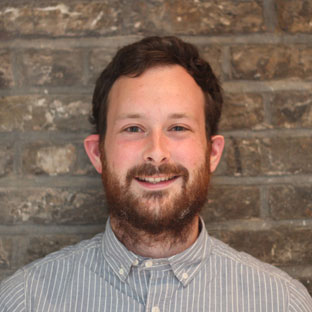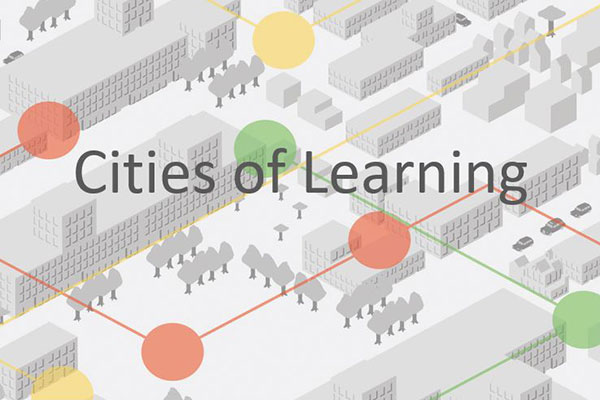At the dawn of a new parliament – one which will be gripped by negotiating Britain’s international relations while also negotiating new alliances in the House of Commons – the UK will get another think tank by the end of tonight.
Some political insiders explain that this kind of parliament is likely to sideline the philosophers and reformers with a policy vision for government. Instead it will be the deal-makers, the tactical masters, and the charismatic in demand.
In this context, what contribution can a think tank realistically make in the coming year? At the RSA we have been working over the last two years to support the development of a new kind of think tank: one that is focused on the issues of a specific place, within an ‘anchor institution’ that itself shapes the place it is in.
Despite over a decade of devolution and localism in UK politics, there are remarkably few* civil society organisations that have been established with a place as their focus. We hear frequent complaints of policy silos and politics centred on Westminster, yet most think tanks organise themselves around a policy issue and locate themselves in Westminster.
To generate a richer debate on the social and economic development of the UK’s towns and cities, we need to bridge the gap between the sidelined political philosophy and the daily grind of machine politics. For several years, the RSA has recognised that universities have enormous potential to drive social and economic outcomes in the places they exist – echoing calls for a new breed of ‘civic university’.
RSA Chief Executive Matthew Taylor will give the keynote speech tonight, launching Nottingham Civic Exchange, based at Nottingham Trent University (NTU). In partnership with the university leadership, the RSA has helped shape this civic think tank – bringing together many of our Fellows across the region and will partner NCE in coming months, pooling our research capabilities. NTU views Nottingham Civic Exchange as a key part of delivering it’s overall strategy.
Going to the heart of what will matter in the lives of one million people across Nottingham and Nottinghamshire, the first programme of Nottingham Civic Exchange is called ‘Out of the Ordinary’. Today, NCE publishes an analysis of ‘ordinary working families’ in the city-region. Rather than simply using economic analysis to fuel Westminster soundbites, and package up a new demographic for electoral fodder, this study uncovers important data on ordinary working families in a specific place.
While the struggles of the ‘squeezed middle’, ‘alarm clock Britain’ and households on low and moderate incomes have been discussed for years, what is most remarkable is that nationwide, an estimated 6m people define themselves as ‘just about managing’, despite being in households with income above the national median.
In Nottingham, jobs in the caring and leisure industries are more common sources of employment compared to the UK average, and the prevailing low pay of these sectors – where women hold the majority of roles – challenges household finances. The RSA’s Inclusive Growth Commission made the case for place-based industrial strategies, which will be even more crucial as the economic adjustment of leaving the EU approaches, and devolution seems likely to stall. NTU has a particular accountability to families who are ‘just about managing’ –21% of their 2015 full time undergraduate intake was estimated to come from this background.
Through the summer, the RSA’s ongoing work with NCE will bring a further focus on economic insecurity. We think addressing economic security is a neglected policy goal, which will help bring in to focus the following:
- The breakdown of traditional class markers. University education has expanded for the recent generation, occupational roles in the workplace are undergoing accelerating change, and home ownership is declining among adults in their 30s establishing families. The financial security previously afforded by a university degree and a white-collar job is eroding, and partly as a consequence owner-occupation is less easily accessible as a form of insurance to protect against unstable or falling incomes. As post-election analysis has suggested, ‘age is the new class’ when it comes to predicting how people align to support political parties.
- The importance of households as a unit of analysis. Most labour market statistics, for example, look at workers as individuals. Most workers live in households and financial decisions are made in that context: 43% of people have a joint account with their partner. Families and their homes transmit wealth through the economy at a scale which dwarfs the government’s own system of tax-funded pensions. Differences in the experience of insecurity between generations remain relatively under-explored.
- The importance of looking across the life-course rather than using snapshot data pictures. Looking at longitudinal data across Europe, the lower middle class has the highest rates of transitory poverty; moving in and out of poverty defines their economic status.
- The economic, fiscal, social and health impacts of subjective (‘felt’) insecurity are just as, if not more potent than, the effects of objective insecurity and material deprivation. This doesn’t mean that addressing material deprivation and poverty should be neglected as policy goals. But it does mean recognising that progressing in the modern workplace brings anxieties and volatility, not necessarily the secure affluence that many crave.
- Longer-term, a defining characteristic of our era is declining confidence that the future will be better than the past. A survey in 2015 found 25% of UK respondents thought their children would be better off than them; 68% thought they would be worse off.
My hypothesis is that in a rich country like the UK, being secure in your economic status matters alongside your absolute affluence. And overall economic inequality matters in part because it exacerbates the experience and perception of insecurity for all in society: greater inequality means there is more to gain and more to lose from a change in their position on the income spectrum.
Beyond the day-to-day parliamentary dealmaking, the election aftermath may prove to be one in which austerity plans are dialled down, labour market considerations dominate Brexit talks and vote-winning policies for ordinary working families are reconsidered. At the very least, facing a broad range of possible futures makes it a good time to be a nimble think tank.
The next phase of work for Nottingham Civic Exchange will look in more detail at the lives of ordinary working families through research, policy development and working with local communities to identify important issues and come up with recommendations for making changes which have real life impact. They will also link students and staff at the university with wider communities through research scholarships, internships, and research projects. In line with the RSA's wider programme on revitalising economic democracy, we need more people to be more involved in policymaking - in this parliament and beyond - if government and society is to successfully address growing economic insecurity for growing numbers of people. Through partnering with a university committed to improving the city and region it calls home, Nottingham Civic Exchange will tighten the links between policy, action and legitimacy in addressing economic insecurity.
* We are aware of: Newcastle City Futures, IPPR North, Centre for London, Southern Policy Centre, Manchester New Economy. Let us know of others that we have missed.
If you are interested in developing your ideas with NTU academics then you can submit to their call for evidence by visiting this link. The deadline is Sunday 13th August.
Related articles
-
The people are taking back control of the Powerhouse
Ed Cox
Ed Cox, Director of Public Services and Communities, discusses a series of events and projects that show that the people are taking back control of the North.
-
Cities of Learning named one of world's most inspiring education innovations
Rosie Clayton
The RSA & Digitalme’s Cities of Learning programme has been recognised in their 2019 Collection as one of the most promising ideas in education. In this blog Rosie Clayton explains the Cities of Learning model, vision and aims.
-
The social housing green paper shows Whitehall’s wilful ignorance of social housing
Atif Shafique
The social housing green paper does little to confront the challenges facing the sector.




Join the discussion
Comments
Please login to post a comment or reply
Don't have an account? Click here to register.
The "civic" in the name makes me think of the original (modern) US think tanks.. like the Chicago Civic Association, created in the 1880s to address the challenges facing cities across the US. These "think tanks" were communities of practice that brought together experts, policymakers, the private sector and citizens.
What make them unique in the longer history of modern think tanks is that back then, expertise, money, policy and citizens (the beneficiaries) were all together. In time, government became more professional, foundations professionalised charity, and modern think tank professionalised expertise and advice. As a consequence, today we find that all these actors have to make an effort to come together.
It will be quire refreshing if the NCE revisits this concept and effectively ensures these various actors work together to co-develop solutions.
I would like to meet with the Nottingham fellows to hear the learnings from this process with a view to potentially doing the same in Derby.
I would like to meet with the Nottingham fellows to hear the learnings from this process with a view to potentially doing the same in Derby.
Hope that the launch went really well. We've enjoyed discussing the direction of the Civic Exchange with Paula and are keen to collaborate further through MetroPolis, our research-led think-tank at Manchester Metropolitan University. So much good work goes on inside our universities - our challenge as a key stakeholder in our city is to project that into relevant policy areas.
https://mcrmetropolis.uk/